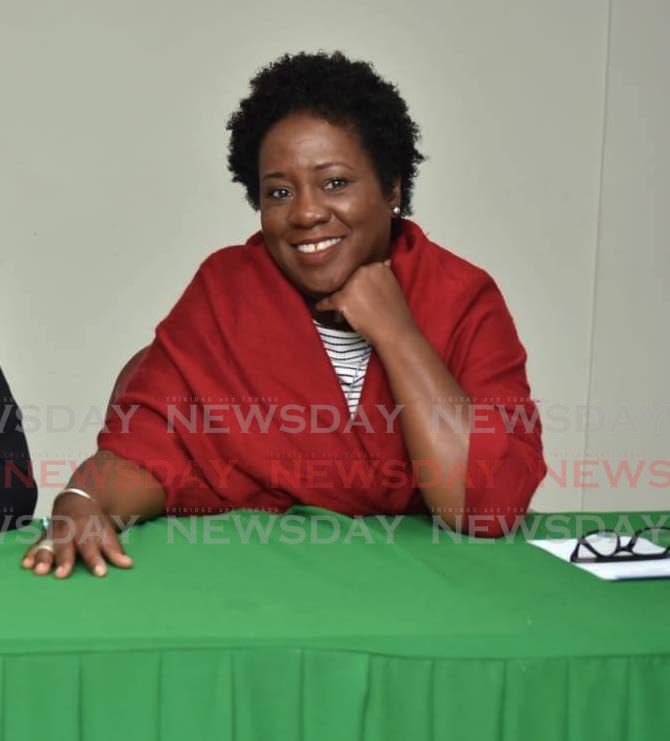Consultant: Children need safe spaces to disclose sexual abuse

CHILDREN need to be given safe spaces to feel safe enough to disclose sexual abuse. Adults in these spaces need to be trained in how to respond to these disclosures. These were some of the conclusions made during the UWI’s Institute for Gender and Development Studies’ special lunch time seminar on November 19, titled Managing Child Sexual Abuse and Disclosure: Creating Safe Spaces for Children.
In her presentation, human and social development consultant Nadine Lewis-Agard said 70 per cent of disclosure by children who have been sexually abused is purposeful, while the remaining 30 per cent is accidental. She said creating a safe space for children to be able to disclose that they have been abused, must be intentional and implemented before disclosure happens.
She said safe spaces have both infrastructural and language components, and could be in schools, youth activities, sports, art groups, faith-based organisations, etc.
“Many adults, in setting up spaces for children, take only their comfort into account and not about whether children feel free to play, lead and express themselves. The adults are often looking for compliant and obedient children, especially in our culture that says children should be seen and not heard.
“But safe spaces should be interactive, inclusive and can often be noisy. Does the imagery in the space show diversity and inclusion and can the children see themselves represented there?
“The spaces should have room for children to share their own experiences, create their own activities, as well as have quiet time and space for confidential conversations.”
Lewis-Agard noted that adults should prepare themselves to make it easier for children to disclose to them, as well as making it easier to hear the disclosure.
POWER
IMBALANCES
“You should take into account your personal biases when it comes to masculinity, femininity, the role of children in a family, adult-child interaction, culture, ethnicity, class, sex, gender, sexual orientation, age and violence.
“Are you aware of the power imbalances that can occur. Examine your own experience with child sexual assault, how would a child’s disclosure impact you? Children watch how you talk to and about others and use this to determine whether or not you are safe to talk to.”
When developing programming in their respective spaces, the consultant said, adults should discuss issues of power imbalance and abuse, avoid victim-blaming around the topic of abuse, ensure that their language supports the dignity of all people, and expose the other adults in the space to training that supports youth empowerment. She said different spaces need an adjustment in terms of language and tone.
Healthy conversation around the subject of child sexual abuse (CSA) between parents and children can be casual and explore what the child knows. Parents/caregivers should not be afraid to be vulnerable and admit they don’t know something. She advised that parents need to develop healthy ways of talking to their children about sex as well as abuse, as too often in TT parents only talk to children about sex in terms of abuse, which gives sex a “dirty, murky quality.”
Agard-Lewis said the likelihood of a child disclosing sexual abuse depended on several factors, including accessibility of supportive caregivers, adults, or friends, access to an environment where they felt safe making the disclosure, the relationship between the abuser and family members – the closer the person is to the family, the less likely the child is to disclose, the number of times the child has been abused, and the gender of the child.
NOT THE SAME
FOR BOYS
While there is language which makes it easier for girls to disclose and for adults to understand how to respond, the same does not exist for boys.
“Disclosure is gendered because conversations around sexuality are gendered. When women and girls are assaulted, they are usually blamed and shamed for it, and girls hear this. Boys hear language about homosexuality around CSA and this causes boys to question their sexuality and wonder if they invited the abuse.
“In cases where the perpetrator is female, society sets boys up to think of this in terms of conquest rather than abuse, and further silences them. Because we only talk about women as victims and not as perpetrators, there’s no language for expressing that the abuser was female.
“Often too we only see abuse as harmful if there is penetration, but the emotional scars are also difficult to deal with. In talking to children who have been sexually abused, the big words are shame and self-blame for both boys and girls in different ways.”
The seminar looked at how children with disabilities are more susceptible to abuse, as there is an invisibility around people with disabilities where they are not seen as whole people, which further contributes to ignoring that they could be abused.
Lewis-Agard noted if a child chooses to disclose to an adult, they should be met with compassion and empathy. She said supporting a child through disclosure can be hard, even for trained professionals.
“Your role is to listen compassionately, including not pressuring the child for details, stay calm and professional, let the child know this is difficult for them and that the abuse is not their fault, and be transparent with the child about who you are obligated to report the abuse to. You can even let the child decide who you go to first.
“After the disclosure you should honour your commitment to the child, check in on your own feelings, and seek support to your own emotional health.”


Comments
"Consultant: Children need safe spaces to disclose sexual abuse"